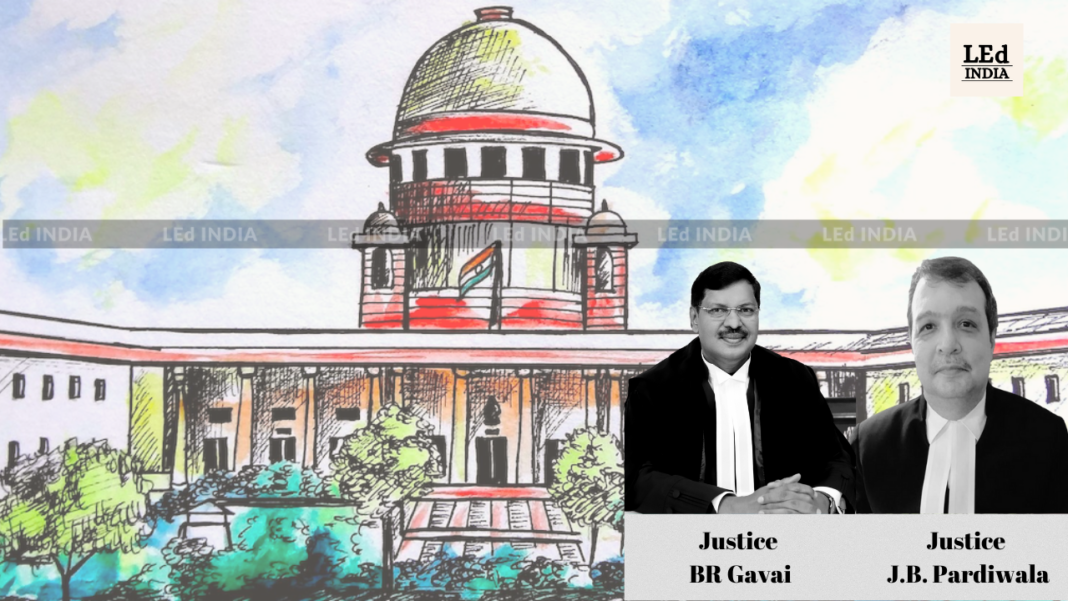The Supreme Court of India invalidates the use of the ‘affinity test’ as the sole criterion for caste claims.
In the case of Priya Pramod Gajbe vs. State of Maharashtra, 2023 INSC 663, the court emphasized that if applicants can produce genuine pre-Constitutional documents showing their tribal identity, there is no reason to reject their claims. The verdict underscores the significance of historical records as valid evidence and marks a significant step towards promoting inclusivity and social justice for individuals belonging to scheduled tribes.
Case details:-
Priya Pramod Gajbe vs State of Maharashtra | 2023 (SC) 591 | 2023 INSC 663
The Supreme Court observed that ‘affinity test’ cannot be applied as a litmus test during scrutiny of caste claims
“If an applicant is able to produce authentic and genuine documents of the per Constitution period showing that he belongs to a tribal community, there is no reason to discard his or her claim as prior to 1950, there were no reservations provided to the Tribes included in the Constitution (Scheduled Tribes) Order”, the bench of Justices observed.
In this case, the Scheduled Tribe Caste Certificate Examination Board invalidated the applicant’s claim (that she was of the “Mana” scheduled Tribe) for the following grounds: (1) She failed to satisfy the Affinity Test conducted during the vigilance inquiry. (2) She failed to prove that the area was originally inhabited by people of the Mana Prospect tribe. The Bombay High Court dismissed the appeal against this order.
In appeal, the High Court recognized the decision in Anand v. Committee for Scrutiny and Verification of Tribe Claims (2012) 1 SCC 113, and said:
“This court has held that while applying the Affinity Test which focuses on the ethnological connections with the Scheduled Tribe, a cautious approach has to be adopted. It has been held that a few decades ago, when the tribes were somewhat immune to the cultural development happening around them, the affinity test could serve as a determinative factor. However, with the migrations, modernization and contact with other communities, these communities tend to develop and adopt new traits which may not essentially match with the traditional characteristics of the tribe. Hence, the affinity test may not be regarded as a litmus test for establishing the link of the applicant with a Scheduled Tribe. It has been held that the claim by a person belonging to the Scheduled Tribe cannot per se be disregarded on the ground that his present traits do not match his tribe’s peculiar anthropological and ethnological traits etc. It has been held that though the Affinity Test may be used to corroborate the documentary evidence, it should not be the sole criteria to reject the claim..”
“It could thus clearly be seen that this Court has held that if the appellant has stayed in bigger urban areas along with his family for decades or if his family has stayed in such urban areas for decades, the applicant may not have knowledge of the aforesaid facts. This Court has, therefore, held that the Affinity Test cannot be applied as a litmus test.”
The court determined that there really is no reason to reject the pre-Constitutional document of the timespan sooner as 1924. It says :
“Documents of the pre-Constitution period showing the caste of the applicant and their ancestors have got the highest probative value. If an applicant is able to produce authentic and genuine documents of the perconstitution period showing that he belongs to a tribal community, there is no reason to discard his or her claim as prior to 1950, there were no reservations provided to the Tribes included in the Constitution (Scheduled Tribes) Order.”
Allowing the appeal, the court stated that the appellant belonged to ‘Mana’ Scheduled Tribe.
Headnotes
Recorded tribal caste records – Affinity tests should not be taken as a litmus test to determine the applicant’s connection to the recorded tribe – Claims of a person belonging to a recorded tribe It cannot be disregarded as such based on its present characteristics, such as those that are inconsistent with the specific anthropological and ethnological characteristics of his tribe – an affinity test can be used to confirm documentary evidence, but it should not be the only criterion for rejecting a claim – if the applicant can present genuine evidence and if the constitutional period shows that he belongs to a tribal community, his There is no reason to reject the claim.




